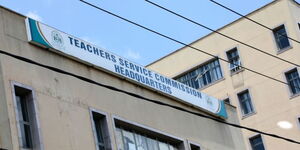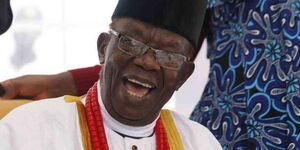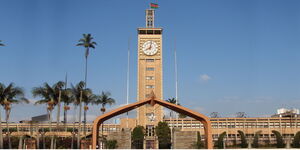In a strategy that is widely viewed as a step towards lowering the prices for basic commodities, President William Ruto allowed duty-free importation of five products from different parts of the world.
Through the Ministry of Treasury, President William Ruto's government on Wednesday, February 22, announced a duty-free importation of five basic commodities.
In a circular notice dated Monday, February 20, 2023, the Treasury advised tax agencies to take note of the fact that rice, cooking oil or fat, sugar, wheat and beans importations were exempted from duty payment.
"The Cabinet Secretary through the Executive Officer of the President approved the positioning of Kenya National Trading Corporation Limited (KNTC) as an anchor Agency of the State initiatives to create price stabilization for essential household food items,in the face of prolonged drought affecting Kenyans," Tax authority noted.
The government approved duty-free importation of 150,000 metric tones of rice, 125,000 metric tones of cooking oil or fat, 200,000 metric tones of sugar, 25,000 metric tones of wheat and 80,000 metric tones of beans.
"The Cabinet Secretary also approved the importation of a further 25,000 metric tones of wheat being a donation from the Government of the Republic of Ukraine."
"The approval is in accordance with the provisions of Section 114 (2) of the East African Community Customs Management Act 2004 and the provisions of paragraph 20 of Part B of the Fifth Schedule to the Act," Tax authority noted.
Consequently, the Department shall facilitate the duty-free importation by applying the following guidelines:
1. The approval is effective from 20th January 2023 for a period of one year. The implication therein is that the import windows shall lapse immediately the quota is exhausted or on 19th January 2024 which is earlier.
2. The importer/clearing agent acting for KNTC will make an application on the iCMS requesting for issuance of an exemption code. The application shall attach the importation documents and the letter of exemption from the National Treasury and Economic Planning.
3. The remissions and exemptions office shall facilitate the issuance of an exemption code to attempt 100 per cent import duty. The other taxes fee and levies shall be payable as per the applicable laws.
4. The Customs release station shall verify and confirm that the actual goods conform to the set conditions including quota allocations per production and the quantity of the donation from Ukraine before physical rerelease.
5. Only the five listed products and the donation qualify for duty-free importation. Any other product outside the approved list shall be dutiable at the applicable EAC CET rates.
6. Remissions and Exemptions office through the Deputy Commissioner, Trade Facilitation Division, shall maintain appropriate records for such importations, submit monthly returns to the PS, National Treasury and copy such returns to the Commissioner and the Deputy Commissioner - Revenue & Regional Coordination.
7. The quantities approved in the referred letter of 20th January 2023 relating to the importation of KNTC do not in any way affect the exemptions previously granted under other legal notice and they shall continue to be processed under the tenor of the approved exemption.












